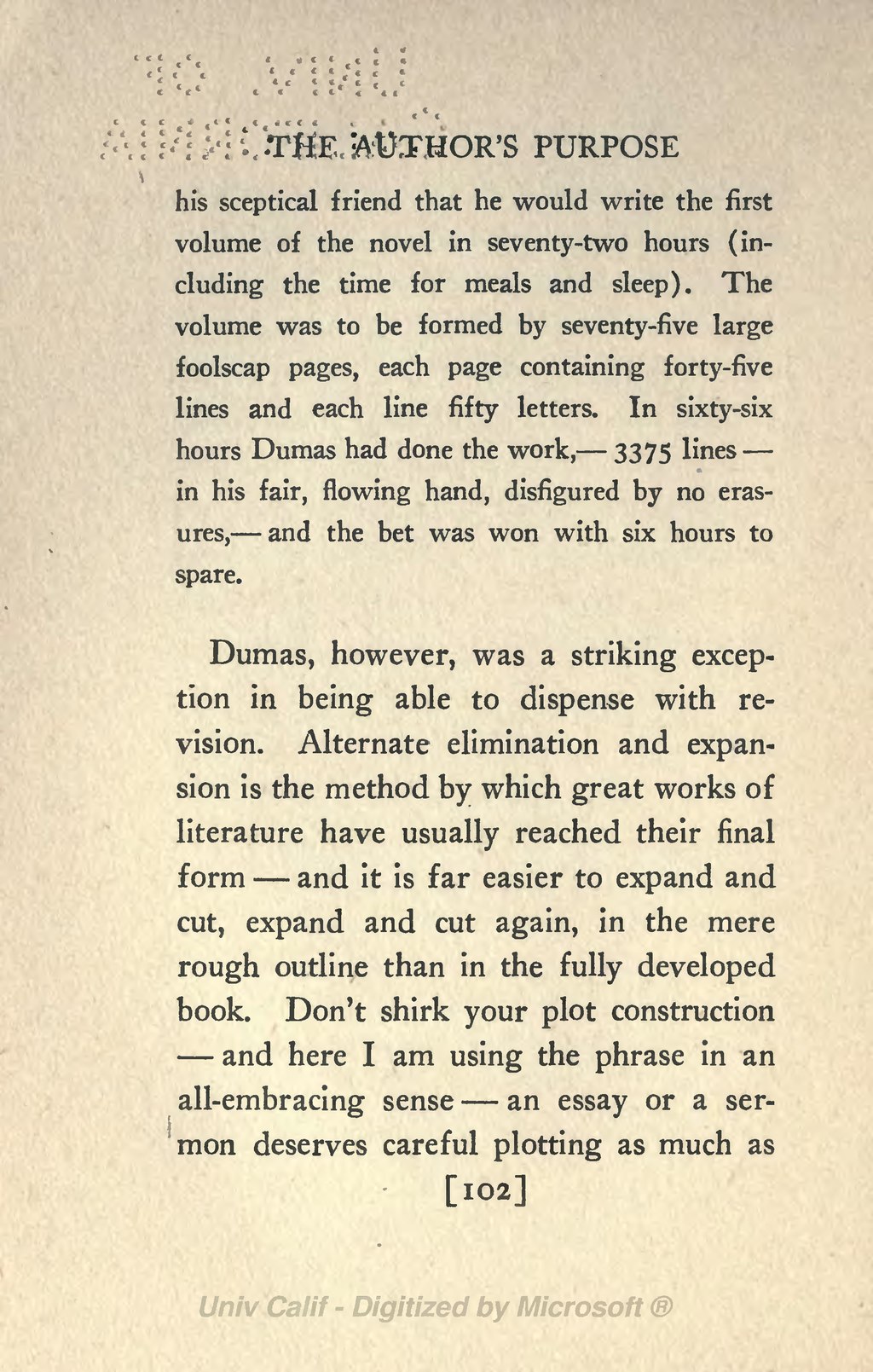his sceptical friend that he would write the first volume of the novel in seventy-two hours (including the time for meals and sleep). The volume was to be formed by seventy-five large foolscap pages, each page containing forty-five lines and each line fifty letters. In sixty-six hours Dumas had done the work,—3375 lines—in his fair, flowing hand, disfigured by no erasures,—and the bet was won with six hours to spare.
Dumas, however, was a striking exception in being able to dispense with revision. Alternate elimination and expansion is the method by which great works of literature have usually reached their final form—and it is far easier to expand and cut, expand and cut again, in the mere rough outline than in the fully developed book. Don't shirk your plot construction—and here I am using the phrase in an all-embracing sense—an essay or a sermon deserves careful plotting as much as
[102]

